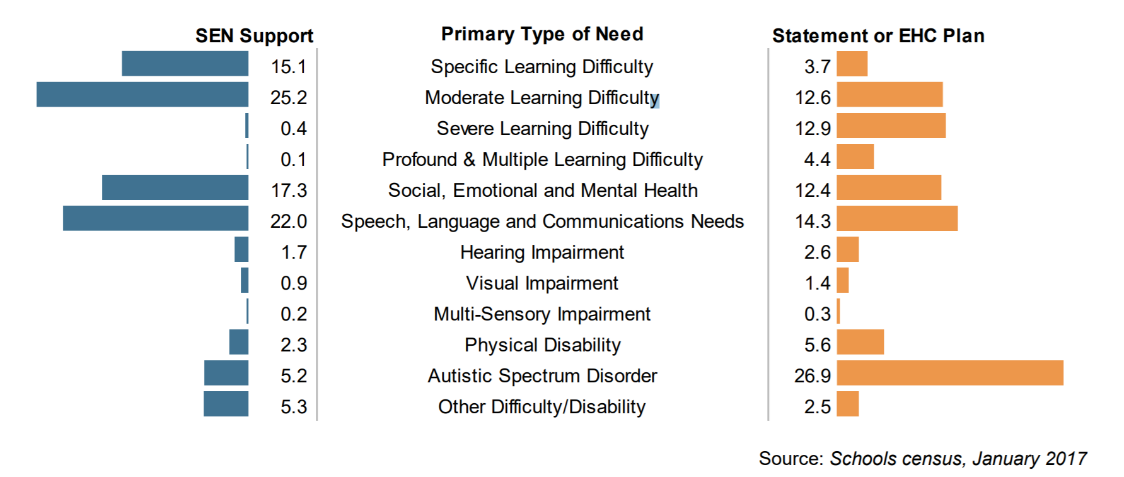1-minute summary: A recent Department for Education publication highlights an increase in the number of pupils with special educational needs (SEN) but does not specifically mention ADHD, despite its prevalence. However, ADHD as a special – educational – need was discussed during the Tes SEN Show 2018, the largest special educational show in the UK. As well as being discussed by two of the seminar’s speakers, organisations specialising in ADHD, including the ADHD Foundation, ADHD Wise UK and Qbtech, attended. An increased focus on the impact of ADHD on the education and care of children and young people continues to be a primary need.
Latest government figures show an increase in the number of children and young people identified as having SEN, for the first time since 2010.
The so-called ‘Statistical First Release’ (SFR) published by the Department for Education highlighted that the number of pupils with special educational needs (SEN) has increased from 1,228,785 in January 2016 to 1,244,255 in January 2017.
The publication additionally highlighted that Moderate Learning Difficulty is the most common type of need for pupils on SEN support; 25.2% of pupils on SEN support had this primary type of need in January 2017. Autistic Spectrum Disorder remains the most common primary type of need for pupils with a statement or EHC plan, with 26.9% of pupils with a statement or EHC plan had this primary type of need in January 2017.
Interestingly, the publication does not mention ADHD as a separate primary type of need (figure 1), whilst ADHD is a common childhood behavioural disorder and estimated to affect around 3-5% of children. Hence, ADHD is present in nearly every classroom. In contrast, the prevalence estimates of autism-spectrum conditions in a UK school-based population generated from the SEN register and diagnosis survey were 94 per 10 000 and 99 per 10 000 respectively.

Figure 1: Percentage of pupils with each primary type of need who are identified as SEN (either on SEN support or with a statement or EHC plan) in state funded primary, secondary and special schools (Source: SFR 37/2017, 27 July 2017).
Considering this, it was very encouraging to see the increased attention that was given to ADHD as a special – educational – need during the Tes SEN Show 2018, the largest special educational show in the UK. Amongst other speakers, this year’s seminar hosted Mr Fintan O’Regan, one of the leading behaviour and learning experts in the UK and Europe, who shared valuable insights about the risks and resolutions of ADHD. Followed on day two by Mr Colin Foley, the ADHD Foundation Training Director with 25-year teaching and leadership experience with the Outstanding Teacher programme and the Improving Teaching programme. Mr Foley highlighted ADHD and associated difficulties in secondary schools and post 16 settings and covered vital strategies to empower SENCOs and teachers to deliver outstanding outcomes for pupils with ADHD.
The exhibition also provided SEN professionals as well as parents and carers of children with SEN the opportunity to gain advice about how products and services can be used to enhance SEN best practice for pupils with ADHD. Expert organisations included the ADHD Foundation and ADHD Wise UK as well as Qbtech, the company providing the FDA cleared and CE marked test, QbCheck. QbCheck, is the only online ADHD test used by SENCos to guide ADHD referrals and shape classroom support strategies.
By highlighting ADHD and its impact on the education and care of children and young people, Tes SEN show adopted an inspiring and innovative focus this year. And whilst attending professionals, and SENCOs in particular, did not need convincing of ADHD being a primary type of need, they did express the need for a step change in the identification and support for these pupils. Qbtech is proud to help them to make that change.